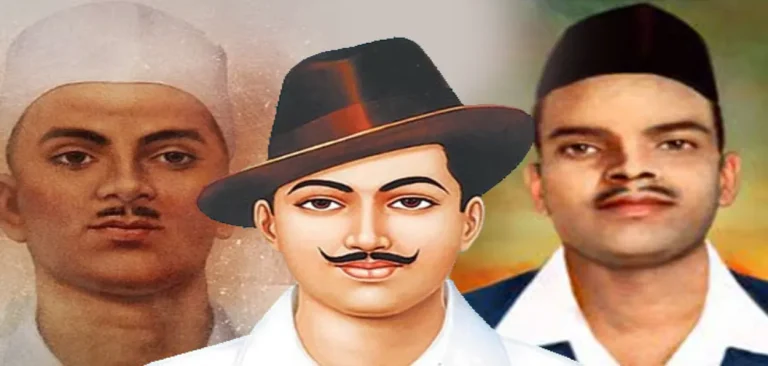Saqib Saleem
“So I think this depression is in my genes, and I can never get rid of it.” Elif Shafak's words in her novel Island of Lost Trees He aptly described Bhagat Singh's longing to fight to liberate India from the British. Bhagat Singh, the youth icon of all time, was 23 years old when he, along with Sukhdev and Rajguru, went to the gallows on March 23, 1931 in Lahore Jail.
Bhagat Singh's father Kishen Singh and his uncle Ajit Singh were important revolutionary figures from Punjab in the early 20th century. Ajit Singh was sent to Mandalay prison for his anti-British activities after which he went into exile.
During World War I, Ajit Singh gathered Indian revolutionaries in some foreign lands and with the help of Shyamji Krishna Varma, Bhikaji Cama, Syed Ziauddin (of Iran), Chempacaraman Pillai, etc. to fight against the British Empire. He lived in Iran, Brazil, Italy and Germany as Mirza Hasan Khan until 1946 and played a major role in the formation of the Tomorrow Party.
During World War II, he founded the Azad Hind Fauj in Italy with the help of Iqbal Shaidai. Subhas Chandra Bose replicated the model in Germany and Japan. For decades Ajit Singh was the most wanted Indian of the British Empire and only senior revolutionaries knew that Hassan Khan living in Brazil was Ajit Singh.
.jpg)
Ajit Singh, father of martyr Bhagat Singh
Bhagat Singh sought advice from this illustrious uncle. Since Ajit Singh was living in hiding and Bhagat Singh was not even supposed to know his location and address, he sent letters to his father through his uncle.
Ajit Singh recalled in his autobiography, “Bhagat Singh wrote to me to return to India and continue the unfinished business here and that he would be at my side; [in case] The government arrested me upon my return to India and opened any case against me. The government replied that I was free to return to India and that no case would be filed against me.
Ajit Singh, a great revolutionary with mature experience in political manoeuvring, realized that the British Empire would not mince words. He will be arrested once he reaches Indian territory. He believed that a man of Bhagat Singh's stature should be trained in Europe in revolutionary politics.
Ajit Singh wrote: “I replied to him that it would be better for him to come here and this would allow him to study how revolutionary movements are organized in other countries.”
Interestingly, Ajit Singh says that Bhagat Singh was also in touch with Rash Behari Bose. He was one of the leaders of the 1915 Lahore conspiracy case and lived in Japan. Rush Behari Bose formed the Indian National Army in Japan during World War II, which was later handed over to Subhas Chandra Bose. Subhas appointed him advisor to the Azad Hind Fauj, led by himself.
Ajit Singh points out that “Bhagat Singh was also in touch with Rash Behari Bose who wrote to him to connect with Ajit Singh and get military training by joining him abroad. Bose added that even the Japanese government wanted reliable Indians and that if he came here he could Arrange his military training and this will help him when the next war breaks out, which was expected in another 4 to 5 years.
Read also: We are loyal Indians: relatives of Kashmiri separatists
All the arrangements were made and Bhagat Singh's passport was obtained when the entire plan was disrupted by an irresponsible remark by one of his party members that Bhagat Singh was afraid of arrest, which was the reason for the bomb-throwing mission. One of the members of the Assembly was given charge of Bram Saran Das even though Bhagat Singh was the fittest person to do so. It was too much to insult Bhagat Singh's courage and he decided to do it himself.
Bhagat Singh could not go to Japan and get military training otherwise the course of history would have been much different. The Indians could have had another intelligent, brave leader besides Subhas Chandra Bose to lead the Azad Hind Fauj which was formed with the help of Japan.

